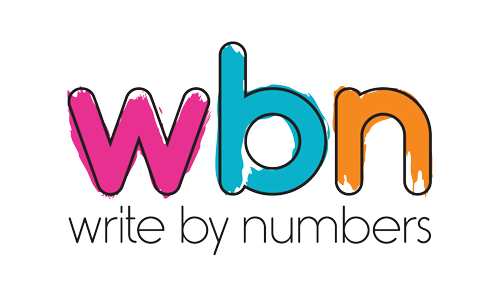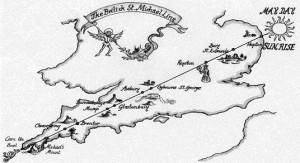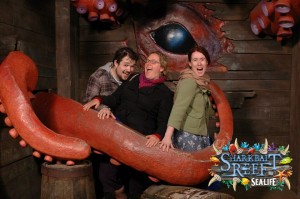I’m going to write down a date. Friday the 10th of September 2010. One day everyone who has ever written – or read – a theatre blog might want to remember it. The day that the Royal Opera House not so much poked themselves in the eye as repeatedly bludgeoned themselves with a heavy instrument (an instrument which, in the subsequent health and safety report, they spelt incorrectly). The wonderful irony to the whole thing being that whilst the storm was raging the ROH’s Head of Digital Marketing, Rachel Coldicutt, was at The Media Festival Arts talking about the importance of open data. It is indeed all in the timing.
I’m not going to give a blow-by-blow account (or analysis) of the events because you can read them first hand on Intermezzo’s blog, with the legal view here and the marketing view here. I also feel it needs pointing out that there were two distinct issues that got tangled up on Friday, issues which should be separated out:
1. The specific case and what it shows about theatre bloggers, blogging and theatres.
2. The perception of the ROH within the arts community (which is bundled up with the issue of funding and the level of fear that is – justly – prevalent in much of the arts community about what the Autumn funding cuts will look like).
I’ve lots to say on the latter subject but, for today at least, I’m going to stick firmly to the former.
Theatre blogging is a niche pursuit. But then going to sit in a darkened auditorium and watch people speak – or in the case of opera, sing – someone else’s words multiple times a month (or some times a week) is also a niche pursuit. The internet, in all its multifaceted joy, allows a niche to flourish. Like attracts like (or compels like). It not only cements tendencies (that of reading about theatre, of continuing going, of knowing more than you could ever keep in your head), it also allows tendencies to grow. Knowing there is a community of people out there doing the same thing – theatre-going is a tribe as much as anyone else. Of course not all repeat theatre goers blog but, in 2010 with the ease of google, I’d be surprised to find a repeat theatre-goer (who wasn’t directly involved in the industry*) who had never read a theatre blog. These people – the people whose names might otherwise be simply one in a marketing database – should be hugely valued (and respected). And if not now, then when? As we get ready to batten down the hatches and weather the oncoming storm Theatres should be respecting these people more than ever.
Theatre blogging, like all individual blogging, is massively democratic. A “name” will only get you so far. But you can make yourself a name within the community. There are many, many ways to do this – most are a niche within a niche, either because of their predilection to certain types of theatre or because of their locality – but what unites theatre bloggers is their dedication (have you tried going to see multiple shows and then coming home and writing them – without being paid to do so? It’s bloody hard work when, frankly, you’d rather be in bed). Every single one of them, even the most world weary or caustically brilliant (you know who I’m looking at), love of what they write. They want theatres to succeed, they want the next show they see to be the best thing they have ever seen, they want to share their excitement (or, as it may be, disappointment).
Recently the Guardian Theatre Blog made me want to put my fist through my computer. From the moment I saw the title of the article – Five stars in their eyes: can you trust unpaid theatre critics? – I knew it was most likely going to result in my feeling the need to jab a knitting needle in my eye. Theatre bloggers, with their wordpress and blogspot accounts, are unpaid. Some might occasionally get free tickets but by and large they pay for the privilege of sitting in a theatre’s seat (or standing as the case may be) and then come home and write about it for free. I was genuinely pained when I saw that the article had caused Jake Orr, who founded the – excuse me for the expletive – fucking important A Younger Theatre, say that he was “somewhat down heartened and questioning the value of what [he writes]”. No one comes out as a fully formed theatre critic. What you need is dedication, some degree of writing flair, a willingness to see a lot of theatre, the knowledge you can always learn (or re-learn) and a whole bundle of passion. Theatre bloggers in the UK have these characteristics in abundance. If they didn’t they wouldn’t be writing about theatre and people wouldn’t be reading them. For me a critic is only as good as my relationship with them. Through my reading – whether I visit their blog in a vaguely stalker-ish manner on a hourly basis or whether I drop in and out according to interest in what they’re reviewing – I know their biases, I know their specialisms, I know where I stand in relation to them. This is what matters. That they also entertain, inform and (sometimes) provoke me is all part of the package.
What blogs create – something which Twitter’s popularity amongst the art-prone has intensified and broadened** – is a web of community. Forget six degrees of separation, I’d decrease it to one degree for the online arts enthusiasts. What role you play in this community can be as diverse as any real-life community might be (whether you see yourself as the Mayor in waiting, the person drawing graffiti on the bridges or occasional tourist who wants to see the major attractions). Words spread (with some voices, as in any community, being louder). In the offline world I’m often asked about shows people should see and I clocked recently that my default response is to fall back on what the “buzz” is on the theatre blogs. Theatre bloggers are word-of-mouth amongst friends magnified – because anyone who can access the internet can be their “friend”. If you under estimate the scale of this community and its ability to communicate – well, then you end up with the Royal Opera House on Friday.
As Intermezzo says on her latest post on the subject theatre blogging is here to stay. I first blogged about theatre-going in 2001, I first bought a theatre ticket directly because of something I’d read on a blog back in April 2007 (when I didn’t even live in London) because of this. It’s laughable that it’s 2010 and many of our major arts institutions haven’t realised that blogging exists as more than a vague concept (or something that someone in their marketing department does in a half-arsed, vaguely inept manner). The theatre companies who have embraced social media (and embrace means more than just being there with your twitter account RTs of positive comments and Facebook page of official photos) are largely the ones without buildings (there is a notable exception up in Stratford). When you’re filling spaces with hundreds of seats every night it’s easy to forget the individual theatre goer sitting in E23 up in the Amphitheatre. When every person you engage with your work matters – as it does for many small and medium sized companies – you don’t forget the individual. That ticket sale – those future ticket sales – matter. That’s why these companies understand that “social” goes both ways.
Having been a long time blog reader I’m happy to say that theatre blogging in the UK is more exciting than it has ever been. It’s also expanding at a faster rate than I’ve ever seen before. Am I surprised that Friday happened? Absolutely not. Maybe the ROH is lucky that it happened now and not six (or twelve months) later, just as the Tricycle is lucky that this happened in 2008. It’s time, however, not just for (if an organisation is lucky) having one person in a marketing department who knows what a theatre blogger is. All it takes is a clear policy, a lightness of touch, and the humility to remember that these people buy tickets to your shows.
Remember that love I mentioned earlier? That love is for your industry, your venue, your show. Embrace it, don’t stamp all over it in steel-capped boots. Why shouldn’t press photos be available to bloggers as long as they’re properly credited? Given that you have charged them money for your product why shouldn’t bloggers review show whilst they’re in previews? Talk to us. We’re bloggers, we love a conversation. But – and here’s the big lesson – bloggers will not bend to you. Five years ago, maybe, but not now. This community – it’s too big and vocal, for that. You need to adapt and respond to us, not the other way around. Change, innovate, blaze a trail. You might even learn something.
*I’m constantly shocked when people inside the industry can’t name a theatre blogger.
**Not every tweeter blogs but I’d guess 97% of bloggers tweet.


